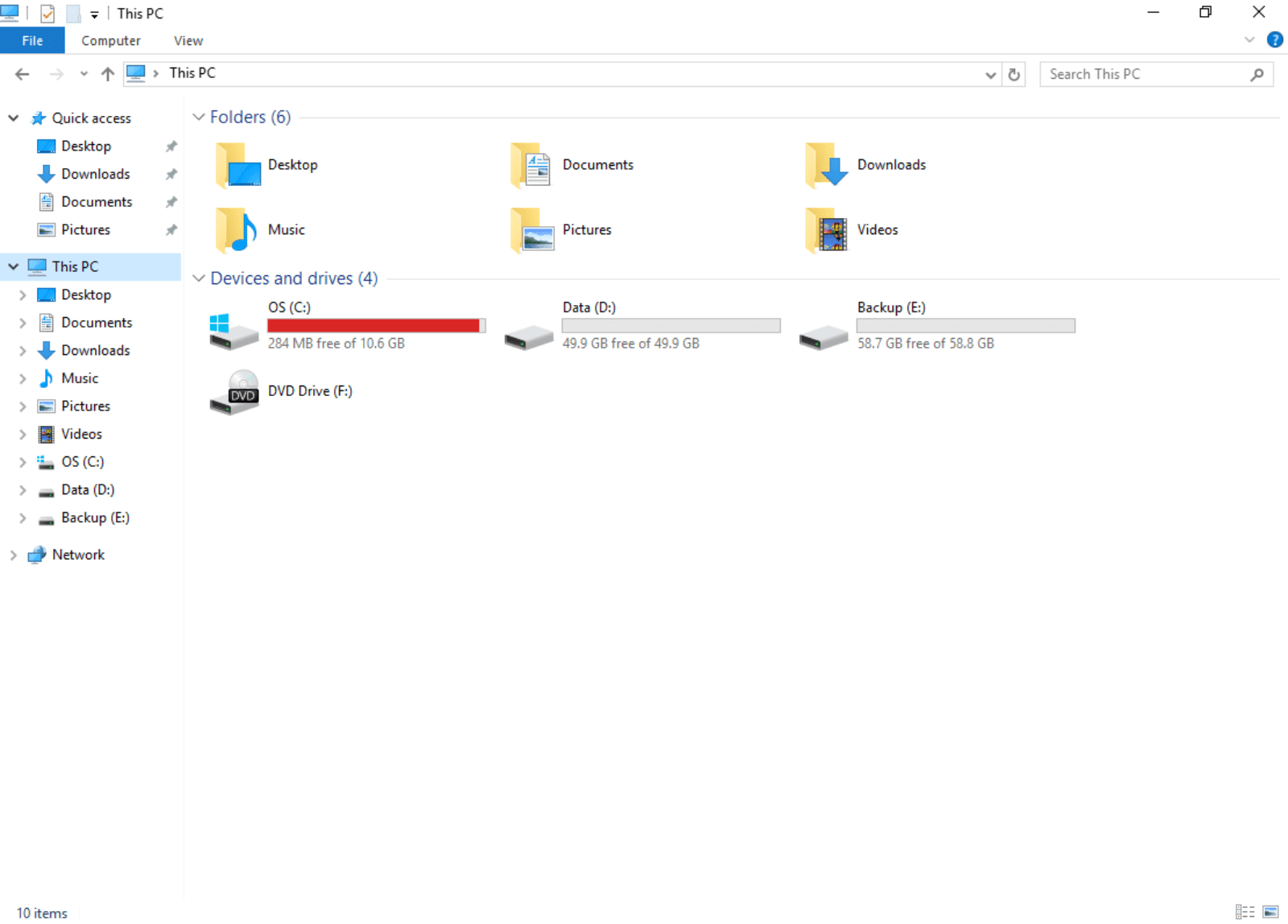Something to look forward to: Microsoft's latest Windows 10 update (version 1903), coming out in May will need almost double the storage space than it did last time for its October 2018 Update (version 1809). Users running the 32-bit version see the requirement jump from 16GB to 32GB and those running the 64-bit version also need a minimum of 32GB, an additional 12GB of space from the previous baseline of 20GB.

In preparation for the Windows 10 May 2019 update, Microsoft has refreshed its minimum hardware requirements page to inform users about the operating system's increased storage needs to perform an upgrade, a change not entirely unexpected by users as the company aims to make the update process smoother in exchange for some gigabytes.
Reserved Storage, as Microsoft calls it, will take at least a 7GB chunk of space from the OS drive to make room for updates, temporary files, apps and system cache so there's little to no chance of *cough* deleting user files again, a problem which the company quickly fixed for "one one-hundredth of one percent of version 1809 installs." The new storage requirement seems to indicate that Windows 10 will now take more space in general.

While it may not affect everyone, users with entry-level PCs and those who upgraded from HDDs to costly SSDs just for boosting Windows performance and essential programs may start to feel short on disk space. With this new storage requirement, Microsoft has also made it official and won't allow partners to sell laptops or tablets with less than 32GB of storage.
It is a good idea to invest in at least 128GB or 256GB of SSD storage for the OS and essentials when looking for a new PC or assembling one as any future updates could possibly raise this minimum requirement to 64GB or more.
If you're looking to clear up some space to prepare for the next Windows update or otherwise, check out these tips & tricks to squeeze out some precious gigabytes.
https://www.techspot.com/news/79867-windows-10-now-requires-minimum-32gb-storage-space.html